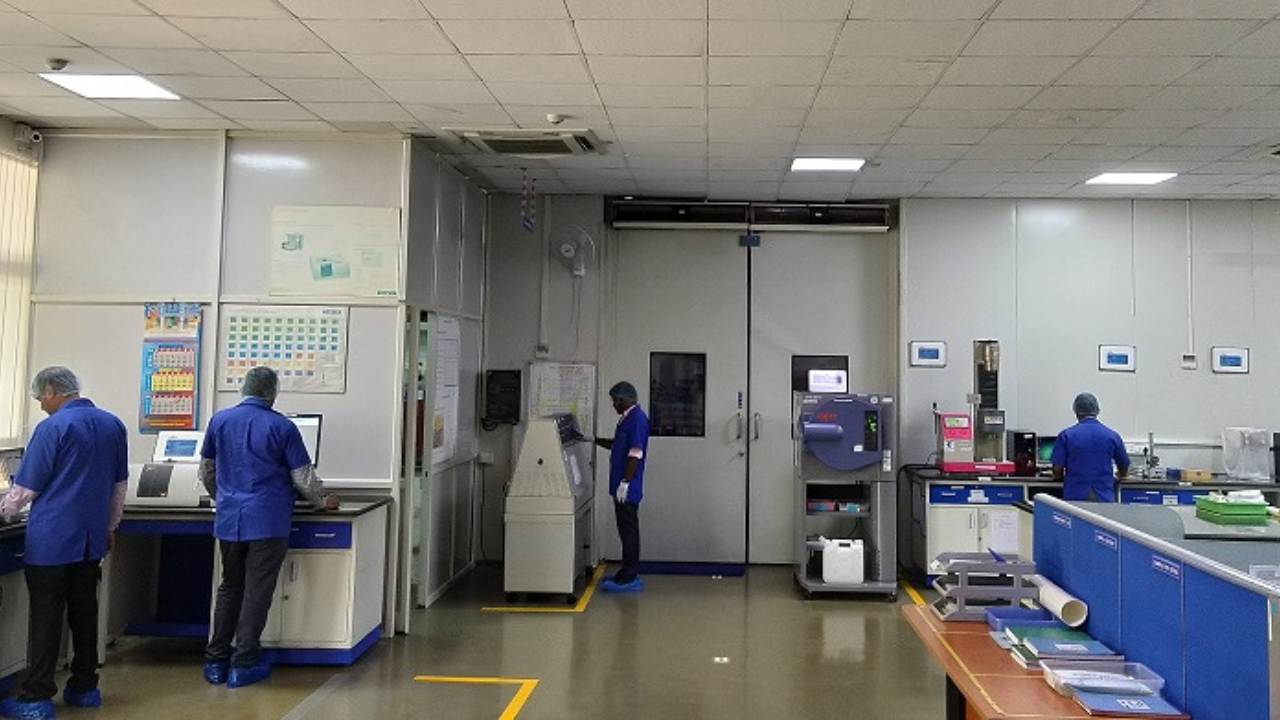Everything You Need to Know About a NABL Approved Lab
NABL Approved Lab: A Comprehensive Guide
In today’s world, accurate and reliable testing is essential for healthcare, food safety, environmental monitoring, and various industries. A NABL approved lab ensures quality and precision in testing services, meeting internationally recognized standards. Whether you are a business looking for certified testing services or an individual seeking accurate diagnostic reports, understanding the role of NABL accreditation is crucial.
What is NABL Accreditation?
Understanding NABL
The National Accreditation Board for Testing and Calibration Laboratories (NABL) is an autonomous body under the Quality Council of India (QCI). It provides accreditation to laboratories in India based on international standards such as ISO/IEC 17025 and ISO 15189. This accreditation ensures that a laboratory meets high-quality standards and provides accurate, reliable results.
Why NABL Accreditation Matters
- Ensures reliable and accurate test results.
- Improves laboratory credibility and customer trust.
- Enhances acceptance of test reports internationally.
- Mandatory for regulatory compliance in various industries.
Key Features of a NABL Accredited Laboratory
1. Compliance with International Standards
A NABL-accredited lab adheres to globally recognized testing methodologies, ensuring precise and consistent results.
2. Skilled and Qualified Workforce
Such laboratories employ highly trained professionals who follow strict protocols to maintain accuracy in testing.
3. Advanced Equipment and Technology
State-of-the-art instruments and technologies are used to conduct various tests with high precision.
4. Regular Quality Audits and Assessments
To maintain accreditation, labs undergo periodic audits and assessments by NABL officials.
Industries Benefiting from NABL Accredited Laboratories
1. Healthcare and Diagnostics
- Pathology and diagnostic labs ensure accurate medical test results.
- NABL certification is essential for hospitals and clinics.
2. Food and Beverage Industry
- Ensures food safety and compliance with FSSAI regulations.
- Testing for contaminants, preservatives, and nutritional value.
3. Pharmaceutical Industry
- Drug testing for quality control.
- Stability studies and raw material testing.
4. Environmental Testing
- Water and air quality assessment.
- Testing for pollutants and hazardous substances.
5. Manufacturing and Engineering
- Material testing and calibration of industrial equipment.
- Ensuring compliance with safety regulations.
Process of NABL Accreditation
Step 1: Application Submission
Laboratories submit an application with required documentation detailing their testing capabilities and quality systems.
Step 2: Preliminary Evaluation
NABL officials conduct an initial assessment of the laboratory’s preparedness for accreditation.
Step 3: On-Site Assessment
A detailed audit is conducted to evaluate equipment, personnel, and testing methodologies.
Step 4: Accreditation Decision
If the lab meets all standards, NABL grants accreditation, which is valid for a specific period.
Step 5: Surveillance and Renewal
Accredited labs undergo periodic surveillance and re-evaluation to maintain their accreditation.
How to Choose the Right NABL Accredited Lab?
1. Verify Accreditation Status
Check the NABL website or ask for certification proof from the lab.
2. Assess Testing Capabilities
Ensure the lab offers the specific tests required for your industry or personal needs.
3. Review Turnaround Time
Faster results with high accuracy should be a priority.
4. Compare Costs and Services
While NABL accreditation ensures quality, pricing may vary between labs.
5. Customer Reviews and Reputation
Look for testimonials and feedback from other customers to gauge reliability.
Challenges Faced by NABL Accredited Labs
1. Maintaining Compliance
Regular audits and strict adherence to guidelines can be resource-intensive.
2. High Operational Costs
Maintaining state-of-the-art equipment and trained professionals requires significant investment.
3. Constant Upgradation
Labs need to upgrade their facilities and methodologies to meet evolving industry standards.
Future of NABL Accreditation in India
With growing awareness about quality assurance, the demand for NABL accreditation is rising. The future of NABL-accredited labs includes:
- Increased government regulations for mandatory accreditation.
- Adoption of AI and automation for improved testing accuracy.
- Expansion into rural areas for better accessibility.
Conclusion
A NABL approved lab is essential for ensuring quality, reliability, and credibility in testing and diagnostics across various industries. Whether in healthcare, food safety, or manufacturing, NABL accreditation guarantees accurate results, regulatory compliance, and international recognition.
Frequently Asked Questions (FAQs)
1. What is the full form of NABL?
NABL stands for the National Accreditation Board for Testing and Calibration Laboratories.
2. How can I check if a lab is NABL accredited?
You can verify the accreditation status on the official NABL website or ask the lab for their certification details.
3. Is NABL accreditation mandatory for pathology labs?
While not mandatory, many hospitals and regulatory bodies prefer NABL-accredited labs for accurate medical diagnostics.
4. How long does NABL accreditation last?
NABL accreditation is usually valid for two years, after which labs need to apply for renewal.
5. Does NABL accreditation apply to all types of testing?
Yes, NABL accredits laboratories for various fields, including medical, industrial, and environmental testing.
6. What are the benefits of NABL accreditation for a business?
Businesses benefit from increased trust, regulatory compliance, and international acceptance of test reports.
7. How much does it cost to get NABL accreditation?
The cost varies depending on the scope of accreditation and the laboratory’s infrastructure.
8. Can a NABL-accredited lab lose its accreditation?
Yes, if a lab fails to meet NABL standards during audits, its accreditation may be revoked.
9. How does NABL accreditation impact patient care?
It ensures accurate test results, leading to better diagnosis and treatment decisions.
10. What is the difference between NABL and ISO certification?
NABL focuses specifically on laboratory accreditation, while ISO certification covers broader quality management systems.


